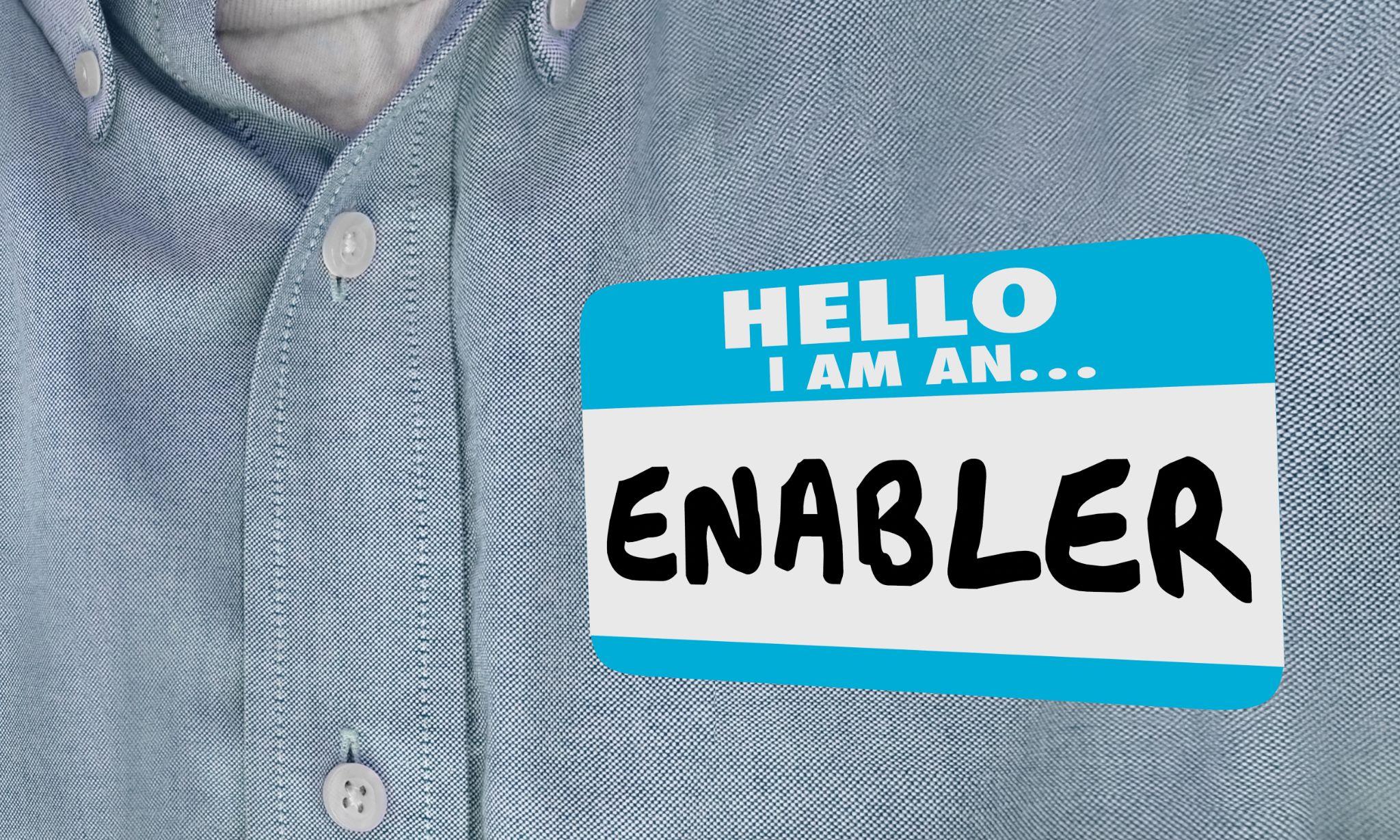In the journey of dealing with addiction to drugs or alcohol, one of the toughest realizations may be recognizing one’s own role in the cycle of dependency. Whether you are struggling with an addiction or watching a loved one battle with it, understanding the dynamics of enabling behavior is crucial.
Enabling can unintentionally carry on the cycle of addiction or substance abuse, making it harder for the person suffering to seek the help they need. Lumina Recovery intends to provide important knowledge on what it means to be an enabler, how to identify enabling behaviors, and steps to transform these actions into supportive, healing gestures.
If you’re questioning whether your actions might be enabling a loved one’s addiction, this guide is for you.
Recognizing Enabling Behavior
Recognizing enabling behavior is the first step toward making a positive change in the cycle of addiction. Enabling behaviors may start from a place of love or desire to protect, but they can end up reinforcing the addiction. Let’s delve deeper into these signs:
Denying the Problem
Pretending the addiction is not as severe as it is can be tempting. This might look like ignoring the issue, making light of the consequences, or believing that the situation will resolve itself without intervention.
Covering Up
This involves hiding the truth about your addicted loved one’s behavior from others. For example, you might find yourself lying or making excuses for your loved one to friends, family, or employers about why they are missing work or social events.
Providing Financial Support
While it might seem helpful to lend money to someone struggling with addiction, this can often lead to funding their substance use. Financial support can also come in the form of paying bills, debts, or legal fees that the addicted person is responsible for.
Avoiding Conflict
It’s natural to want to avoid arguments, but consistently steering clear of confronting the addicted person about their behavior can enable the addiction to continue. This avoidance can also mean making excuses for their actions or behaviors.
Taking Over Responsibilities
When you start handling tasks that the addicted person should be managing, like household chores, parenting, or work duties, you allow the addiction to consume their life without facing the natural consequences of their actions.
By recognizing these behaviors in ourselves, we can begin to understand how they contribute to the cycle of addiction and take steps to modify our actions.
Comprehending the Impact
The impact of enabling behavior extends beyond the addicted individual—it affects the enabler and the broader relationship dynamics between family members or close relationships. These effects include:
- Delayed Realization: Enabling behaviors can prevent the addicted person from seeing the full extent of their problem. Without facing the natural consequences of their actions, they may not recognize the need for change.
- Emotional and Physical Toll: For enablers, constantly covering up, providing financial support, and avoiding conflicts can lead to stress, anxiety, and even physical health issues. The emotional burden of managing another person’s addiction can be overwhelming.
- Blurred Boundaries: Enabling often involves crossing boundaries that would typically be in place to maintain a healthy relationship. This can lead to a loss of respect, trust, and the enabler’s own sense of self.
- Hindered Motivation to Change: Protecting an addicted loved one from the consequences of their actions removes a significant motivator for seeking help and making a change. The lack of accountability can stall the recovery process.
Understanding these impacts is crucial for recognizing the need to shift from enabling to supporting. Support involves encouraging professional help, setting and maintaining healthy boundaries, and taking care of your well-being. By changing our approach, we can offer help that empowers our loved ones to take the necessary steps towards recovery.
10 Steps to Stop Enabling
Changing enabling behaviors requires awareness, intention, and sometimes, a significant shift in dynamics within the relationship. Here are steps to help you move toward positive change:
- Acknowledge the behavior. Recognizing that your actions, no matter how well-intentioned, may be enabling addiction is a pivotal first step. Reflect on your behaviors and consider how they may be preventing your loved one from facing the necessary consequences of their actions.
- Educate yourself about addiction. Understanding addiction as a complex disease will help you approach your loved one with empathy and informed support. Learn about the psychological and physical aspects of addiction, treatment options, and the recovery process. This knowledge can change how you respond to the addicted individual’s behaviors and needs.
- Set clear and firm boundaries. Establishing boundaries is crucial for your well-being and for encouraging your loved one to take responsibility for their actions. Setting boundaries might include not lending money, refusing to cover up their behaviors, or setting limits on how much you will involve yourself in their crises. Communicate these boundaries clearly and consistently enforce them.
- Encourage responsibility. Instead of taking over their responsibilities, encourage your loved one to take charge of their life. This could mean letting them face the natural consequences of their actions, such as dealing with legal issues or job loss. Support them in finding solutions, but resist the urge to fix problems for them.
- Seek support for yourself. Dealing with a loved one’s addiction can be isolating and overwhelming. Seek support from groups like Al-Anon, where you can share experiences and gain insights from others in similar situations. Consulting with a therapist can also provide you with strategies to cope and maintain your mental health.
- Promote treatment and recovery. While you cannot force someone to seek treatment, you can encourage and support their journey to recovery. Research treatment options, offer to help with logistics like making phone calls or arranging transportation, and express your belief in their ability to recover. Celebrate small victories and remain supportive, even through setbacks.
- Practice self-care. Taking care of yourself is not selfish, it’s necessary. Engage in activities that nourish your body, mind, and spirit. Maintaining your health ensures you have the strength to offer support and sets a positive example for your loved one.
- Learn effective communication skills. Communication is key in supporting someone with an addiction. Learn to express your feelings and concerns without judgment or blame. Use “I” statements to speak about your experiences and feelings, and listen actively to your loved one’s perspective.
- Adjust expectations. Recovery is a journey with ups and downs. Adjusting your expectations can help you remain supportive without being disillusioned by setbacks. Understand that progress may be slow and that relapse can be part of the recovery process.
- Stay informed and flexible. As you and your loved one navigate the path of recovery, staying informed about addiction and being flexible in your approach can make a significant difference. Be open to changing strategies if something isn’t working and celebrate every step forward, no matter how small.
Empower Healing With Lumina Recovery
Identifying enabling behaviors in ourselves can be challenging, but it’s a crucial step towards healing, not just for our loved ones battling addiction but for our well-being. By recognizing and changing these behaviors, we can truly support our loved ones in their recovery journey.
Remember, it’s about providing the kind of help that leads to lasting change. Lumina Recovery provides family therapy and outpatient services to help those struggling with addiction and their loved ones.
To learn more, reach out to our team today.



